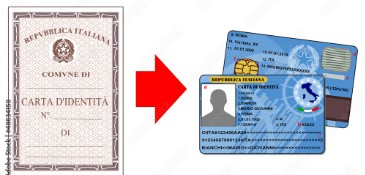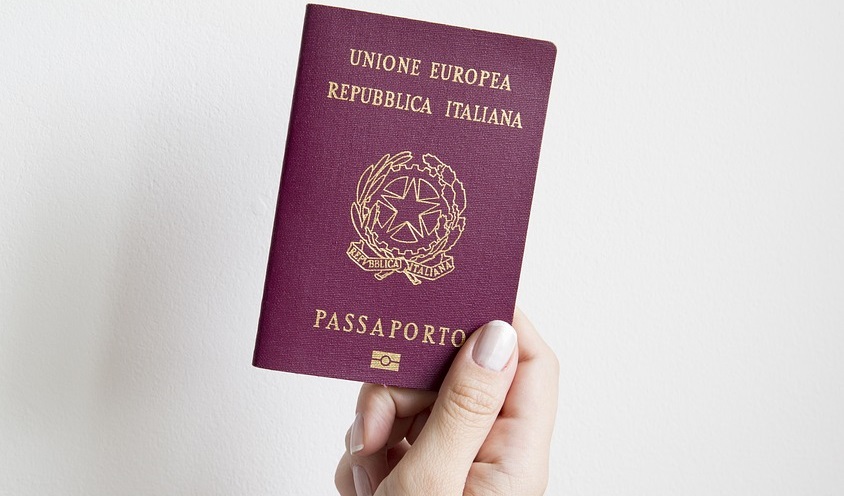Table of Contents
- Main Documents for Entering Tunisia
- Passport or ID Card for Tunisia
- Entry Visa for Tunisia
- Entry to Tunisia for Foreign Citizens
- Useful Information and Contacts
Main Documents for Entering Tunisia
If you’re wondering what documents are required to enter Tunisia, it’s important to know that the country has specific rules depending on nationality and type of travel. Generally, Italian citizens can enter quite easily as long as they have the required documents. Tunisia is an increasingly popular destination for its landscapes, culture, and fascinating history. Consequently, the local authorities have made some provisions for those visiting for short tourist stays, but it’s essential to ensure you have all the correct documents. In this guide, you’ll find all the useful information regarding the documents you need to bring with you to avoid issues at the border and ensure a smooth and pleasant experience in Tunisia.Passport or ID Card for Tunisia
Passport
Generally, Italian citizens are required to have a passport valid for at least 90 days from the date of entry into Tunisia. It is essential to check your passport’s expiration date well in advance, especially to avoid complications when arriving at the Tunisian border. For those entering the country for tourism without an organized tour, the passport is the only accepted document, and it must be valid for at least three months. Without this requirement, there is a risk of being turned away by local authorities upon arrival in Tunisia. We recommend keeping a copy of your passport and memorizing the main details for added security and quick access in case of loss or theft.ID Card
The Italian ID card is valid for entry into Tunisia only under certain conditions. Those traveling with a tour organized by a travel agency may enter Tunisia with just the ID card valid for international travel, without needing a passport. It’s important to verify the specific requirements for using an ID card with your travel agency and bring the original document with you. Photocopies of the ID card are not accepted at the border, even if validated with an authenticity stamp. In any case, we advise having a passport as an option, especially if you intend to travel independently or for purposes other than organized tourism.Entry Visa for Tunisia
Italian Travelers
Italian citizens wishing to stay in Tunisia for up to 90 days do not require an entry visa. This provision is granted to those entering for tourism purposes and for short stays, without any intent to reside or work in the country. Anyone planning to extend their stay beyond 90 days must obtain a temporary residence permit, which can be requested directly from the Tunisian police, specifying the reasons for the extension. Upon departure or arrival in Tunisia, passengers must fill out a form provided by the onboard staff. This form helps the border authorities verify personal details and the purpose of the trip.Beyond 90 Days
If you plan to stay in Tunisia for over 90 days, you must apply for a temporary residence permit. This procedure is mandatory and may take a few days to complete, so it’s advisable to arrange it in advance. Prolonging your stay without authorization may result in penalties and complications with local authorities, potentially making it difficult to return to Tunisia in the future. For this reason, it is recommended to comply with the permitted stay limits. Tunisia offers provisions to citizens from many countries, but it’s always important to ensure that the duration and purpose of your stay comply with local regulations.Entry to Tunisia for Foreign Citizens Residing in Italy
Documents for Foreign Citizens
Foreign citizens residing in Italy must be aware that the Italian ID card is not valid for international travel. Even if traveling with an organized tour, a passport is required to enter Tunisia. For those who hold citizenships other than Italian, it is necessary to check the specific visa requirements and necessary documents for entry. A passport is always mandatory, and the possibility of traveling without a visa depends on the traveler’s nationality. Tunisia allows visa-free entry for citizens from over 90 countries, but each case is unique. For updated information, you can contact the Tunisian consulate or consult the official website of the Tunisian government.Residence Permit and Visas
If a foreign citizen intends to stay in Tunisia for more than 90 days, a residence permit is required, regardless of nationality. This is particularly important for those planning to visit the country for work or study. Every foreign citizen should also be aware that the rules may change, so it’s advisable to check their specific situation directly with the Tunisian authorities to avoid unexpected issues.Useful Information and Contacts
Before leaving for Tunisia, it’s helpful to know the key contacts for any emergencies and for consular assistance. Below are the details of the Italian diplomatic representation in Tunis, which can be an important point of reference during your stay.-
- British Embassy in Tunis: Rue du Lac WindermereLes Berges du Lac Tunis 1053

Tunisia Documents: A Comprehensive and Updated 2025 Guide for UK Citizens
Planning a trip to Tunisia and wondering what documents you need? You’ve come to the right place! Knowing the entry requirements is essential for a smooth and relaxing holiday. Whether you need a passport, visa, or other specific paperwork, this comprehensive and updated 2025 guide will provide you with all the information you need to prepare. We’ll explore what you need for Tunisia, what procedures to follow, and what timelines to keep in mind for a stress-free trip filled with discovery and fun. Don’t risk jeopardizing your vacation – follow our advice and get ready to go!
Tunisia Passport: Requirements, Validity, and Renewal for UK Citizens
A valid passport is one of the most important documents for travelling to Tunisia. As of 2025, UK citizens entering Tunisia require a passport that is valid for at least six months from the date of arrival. It is essential to check your passport‘s expiration date and, if necessary, apply for renewal well in advance to avoid delays or issues. Additionally, the passport should have at least two blank pages for entry and exit stamps.
For UK citizens, the standard passport is valid for ten years. You can apply for or renew your passport online through the HM Passport Office website. It is advisable to keep a digital copy of your passport on a secure device or cloud storage service so that you have it available in case of loss or theft.
If your passport is nearing its expiration date, don’t wait until the last minute to renew it! Processing times can vary depending on the time of year and the demand, so it’s best to act early to avoid stress and inconvenience. Remember, your passport is your ticket to Tunisia, so take good care of it!
Tunisia Visa: Do UK Citizens Need a Visa?
For short tourist stays (less than 90 days), UK citizens generally do not require a visa to enter Tunisia. However, it’s always best to verify the most up-to-date information on the UK government’s travel advice website or with the Tunisian embassy in the UK. Visa requirements can change, so it’s crucial to stay informed.
If you plan to stay in Tunisia for longer than 90 days or for purposes other than tourism (such as work or study), you will likely need to apply for a visa before you travel. Contact the Tunisian embassy in London for detailed information on visa application procedures and required documentation.
Even if a visa is not required, you may be asked to provide proof of sufficient funds to cover your stay, a return or onward travel ticket, and confirmation of your accommodation (e.g., hotel booking). Having these documents readily available can help ensure a smooth entry into Tunisia.
Tunisia What Do I Need: Other Essential Documents and Requirements
Besides your passport and visa (if required), there are other documents and requirements that you may need for your trip to Tunisia. Travel insurance is highly recommended to cover any medical expenses or unforeseen events during your stay. Choose a policy that offers comprehensive coverage, including medical repatriation and legal assistance. It’s also useful to have a copy of your insurance policy and customer service contact information with you.
Other useful documents for your trip may include an international driving permit if you plan to rent a car, and a copy of your hotel reservation or rental agreement. Keep copies of your important documents separate from the originals in case of loss or theft.
Be aware of customs regulations regarding what you can bring into Tunisia, including restrictions on alcohol, tobacco, and certain goods. Check the Tunisian customs website for the latest information. Being prepared will help avoid any surprises at customs.
Traveling with Minors: Specific Documents and Necessary Authorizations
If you are travelling to Tunisia with children, it is important to know the specific documents and permissions needed. As of 2025, minors need their own individual passport. Make sure that your child’s passport is valid for at least six months beyond your planned stay.
If the child is traveling with only one parent or a legal guardian, you may need written permission from the other parent or legal guardian. It is advisable to check with the UK government or the Tunisian consulate to know what procedures and documents are required.
To avoid problems at the border, it is important to carry a copy of the child’s birth certificate. If the parents have different surnames than the child, carrying the birth certificate is particularly advisable. It is always a good idea to travel with all necessary documents to ensure a smooth entry.
2025 Updates: Recent News and Changes in Entry Requirements
As of January 1, 2025, there have been no major changes to the entry requirements for UK citizens visiting Tunisia. However, it is always a good idea to check the latest information on the UK government’s travel advice website or with the Tunisian embassy in the UK, as regulations can change at any time.
One notable update is the increased use of biometric screening systems at border control, which could lead to longer waiting times for entry and exit from the country. It’s advisable to arrive at the airport with plenty of time to spare to avoid missing your flight.
Additionally, due to the international geopolitical situation, there may be enhanced security measures in place, such as stricter baggage and document checks. Follow instructions from local authorities and cooperate with security personnel to ensure your safety and that of other travelers.
Useful Travel Tips for Preparing Your Travel Documents
To best prepare your travel documents for Tunisia, here are some useful tips:
- Check the validity of your passport and apply for renewal well in advance if needed.
- Make photocopies of your documents and keep them in a safe place separate from the originals.
- Email a copy of your documents to a family member or friend so they can assist you in case of loss or theft.
- Register your trip on the UK government’s travel registration service so that you can be easily contacted in case of emergency.
- Carry a recent passport photo with you in case you need to apply for a visa extension or other permit.
By following these simple tips, you can efficiently prepare your travel documents and travel to Tunisia worry-free!
For more information on traveling abroad, visit the UK government’s Foreign Travel Advice website.
Before leaving for Tunisia, it’s helpful to know the key contacts for any emergencies and for consular assistance. Below are the details of the Italian diplomatic representation in Tunis, which can be an important point of reference during your stay.
- British Embassy in Tunis: Rue du Lac WindermereLes Berges du Lac
Tunis
1053
- British Embassy in Tunis: Rue du Lac WindermereLes Berges du Lac
We recommend noting these contacts before departure for quick reference if needed. It’s also advisable to register on the “Where We Are in the World” website to facilitate consular assistance in case of emergencies during your stay.
Thank you for reading our page on the documents needed to travel to Tunisia, and here are a few reminders:





